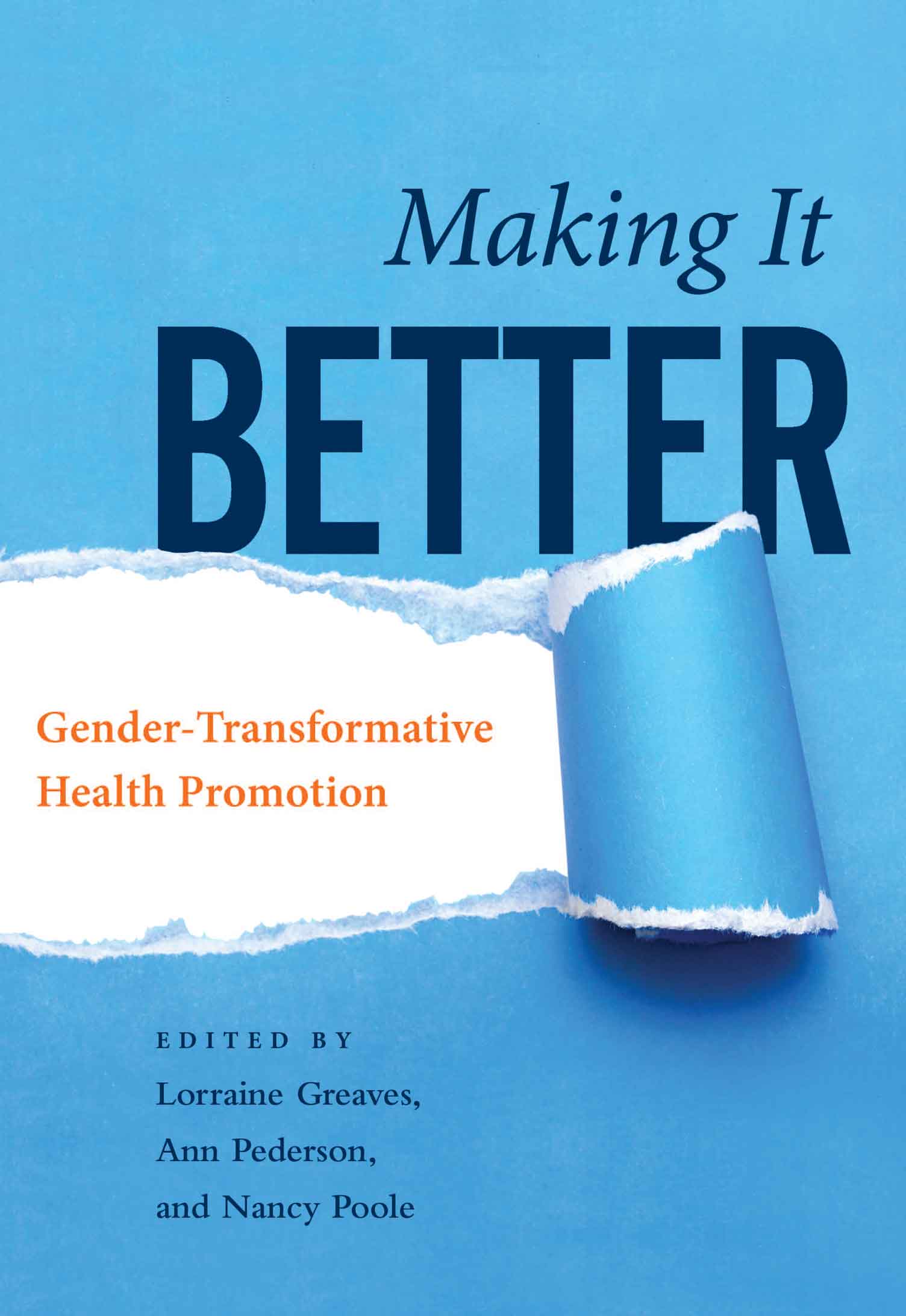This resource is a book with examples of gender transformative public health responses to various issues. Gender transformative approaches have explicitly dual goals of addressing substance use and gender equity simultaneously. A chapter on quitting tobacco illustrates a gendered, harm reduction, equity-oriented approach to tobacco cessation that uses a critical analysis of tobacco cessation campaigns. Quitting for health, not for concerns such as facial wrinkling or sexual attractiveness is a preferred response, as it does not use negative gender stereotyping to advance health.
In this innovative collection, leading thinkers in clinical medicine, sociology, epidemiology, kinesiology, education, and public policy reveal how health promotion is failing communities by failing women. Despite a longstanding consensus that social inequalities shape global patterns of illness and opportunities for health, mainstream health promotion frameworks continue to ignore gender at relational, household, community, and state levels. Exploring the ways in which gendered norms affect health and social equity for all human beings, Making It Better invites us to rethink conventional approaches to health promotion and to strive for transformative initiatives and policies. Offering practical tools and evidence-based strategies for moving from gender integration to gender transformation, this anthology is required reading for policymakers, health promotion and healthcare practitioners, researchers, community developers, and social service providers.

